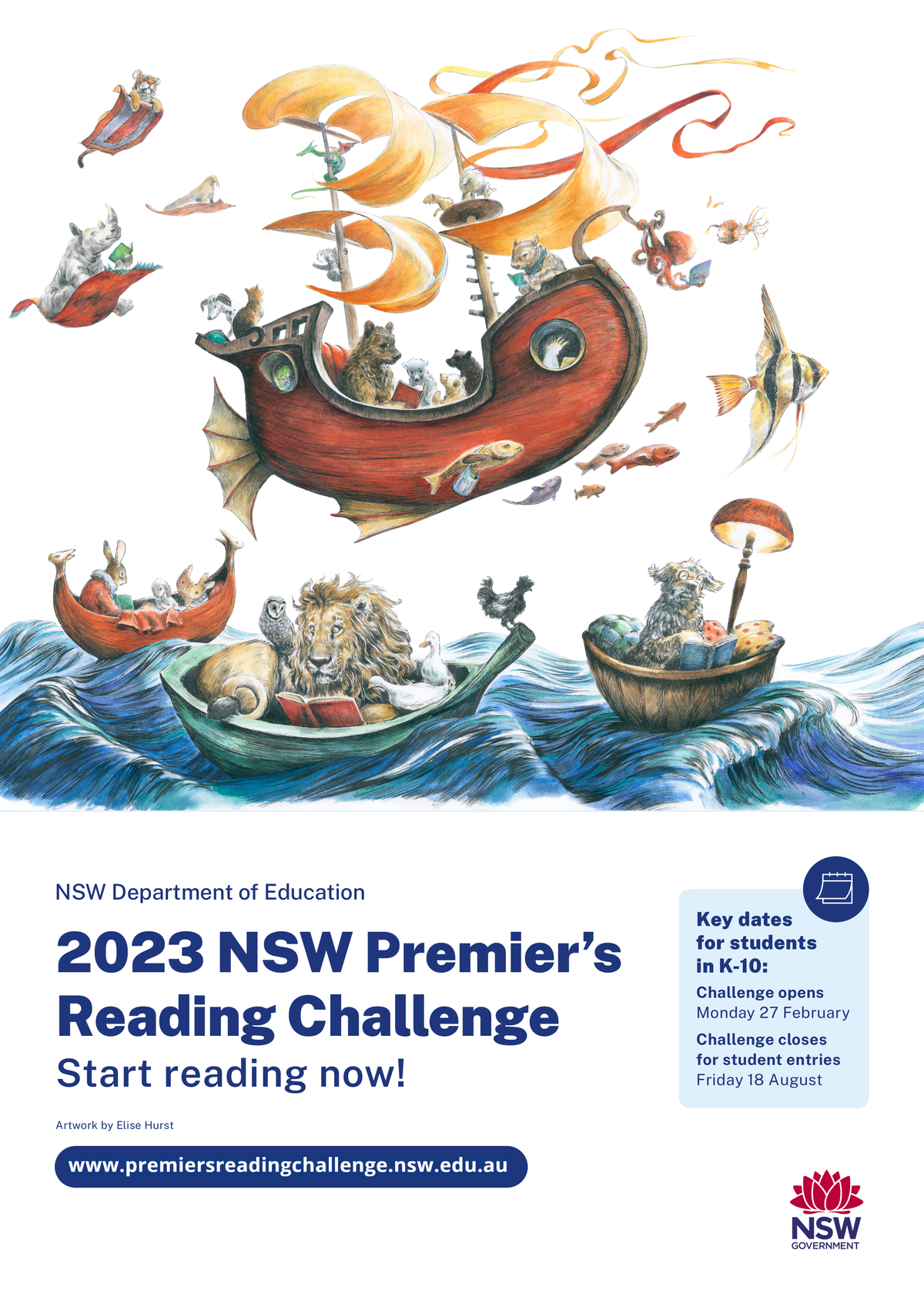A Look at Learning
Mrs Theresa Grills
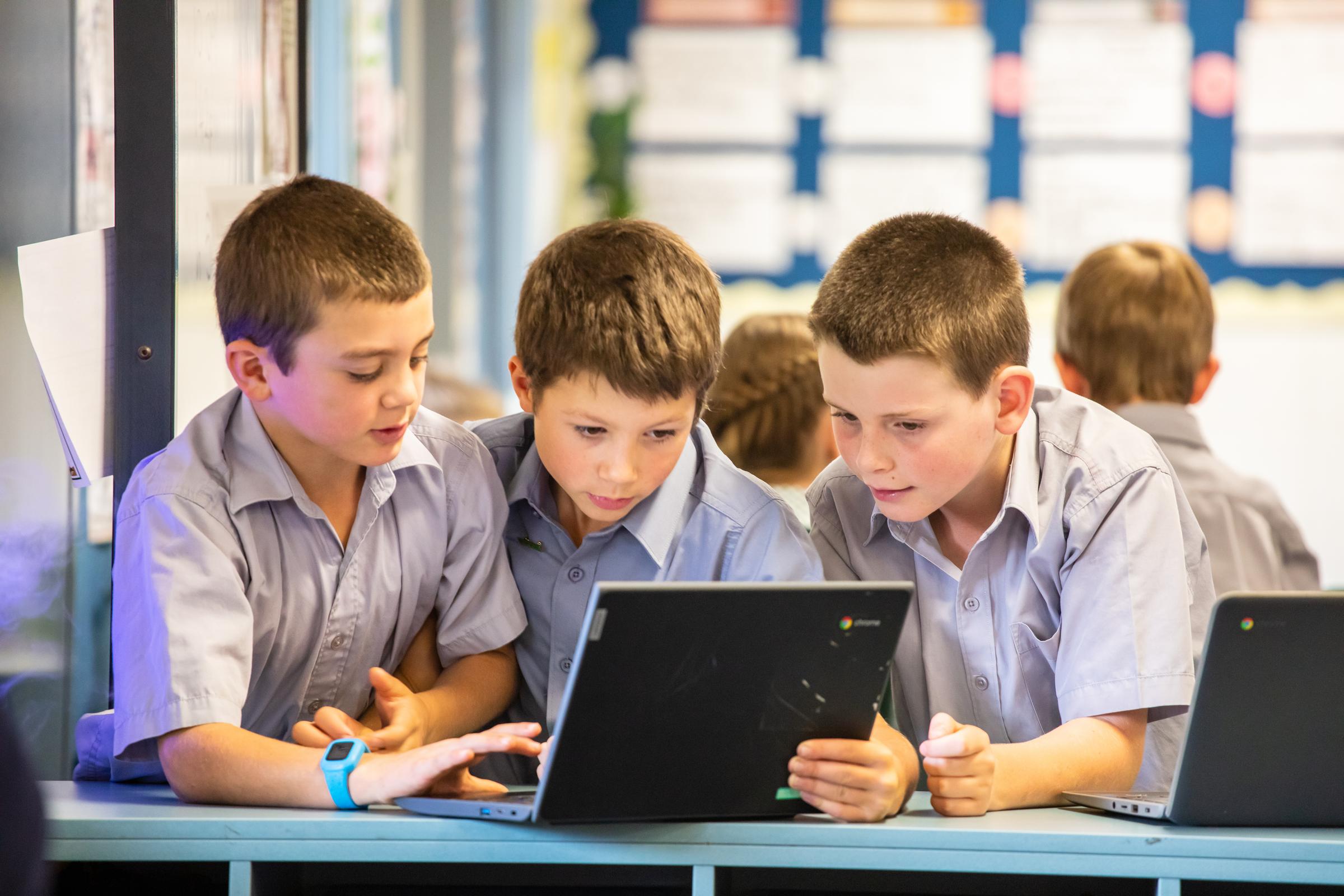
A Look at Learning
Mrs Theresa Grills
On Thursday 6th April some students from the school attended Tenterden Hall to witness the release of the endangered Bells Turtles. This program is supported by the Local Land Services and if you would like any further information regarding this project please see the link below.
For more information on the Bells Turtles please see below link: https://www.environment.nsw.gov.au/threatenedspeciesapp/profile.aspx?id=10266
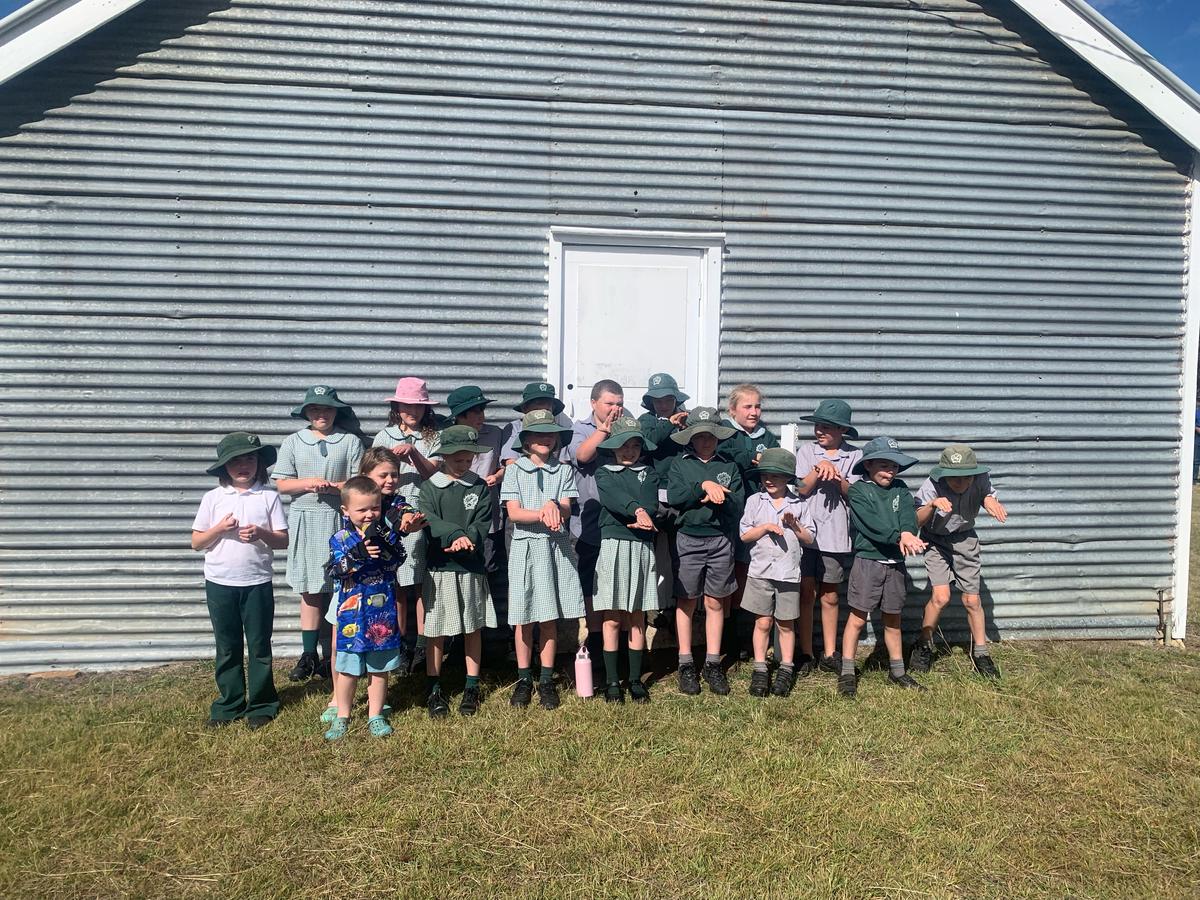
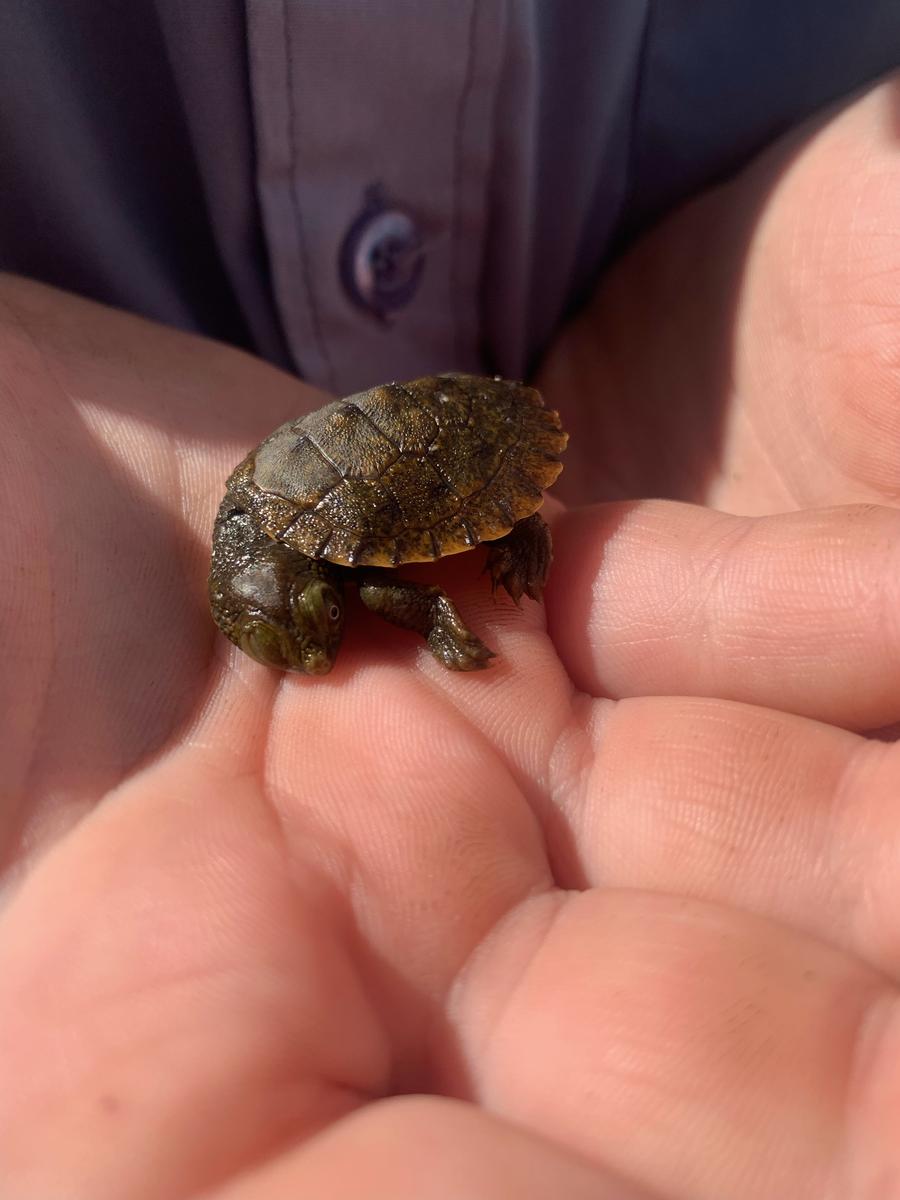
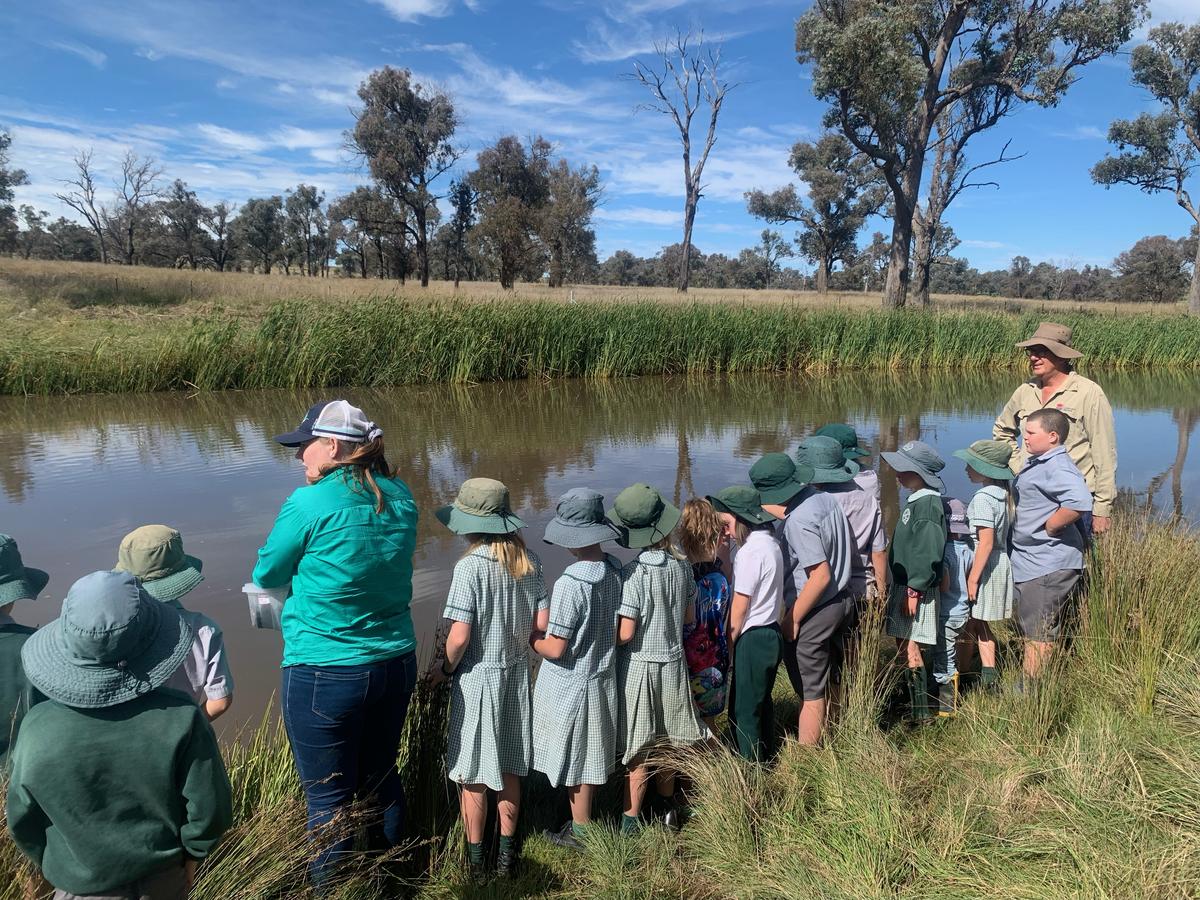



The term ‘fine motor’ refers to the small muscles of the body, such as the fingers, hands, tongue, toes and eyes.
Fine motor skills is about the ability to control these fine muscles, particularly in the hands and eyes, to execute movements and tasks.
Skills do not develop on their own in the body – all parts of the body must work together and all affect each other.
In Transition we have fun with activities that are planned to learn and practice fine motor control such as:
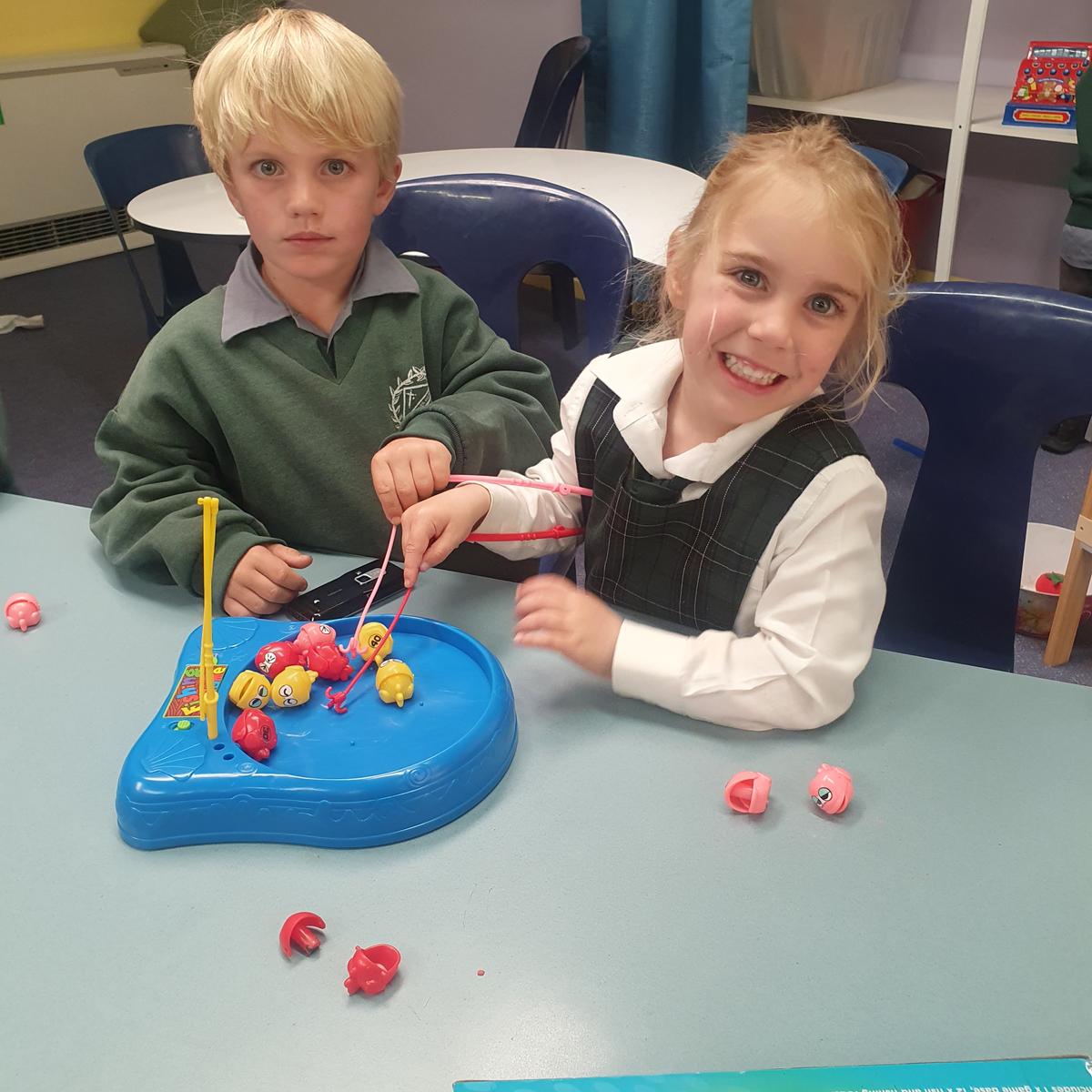
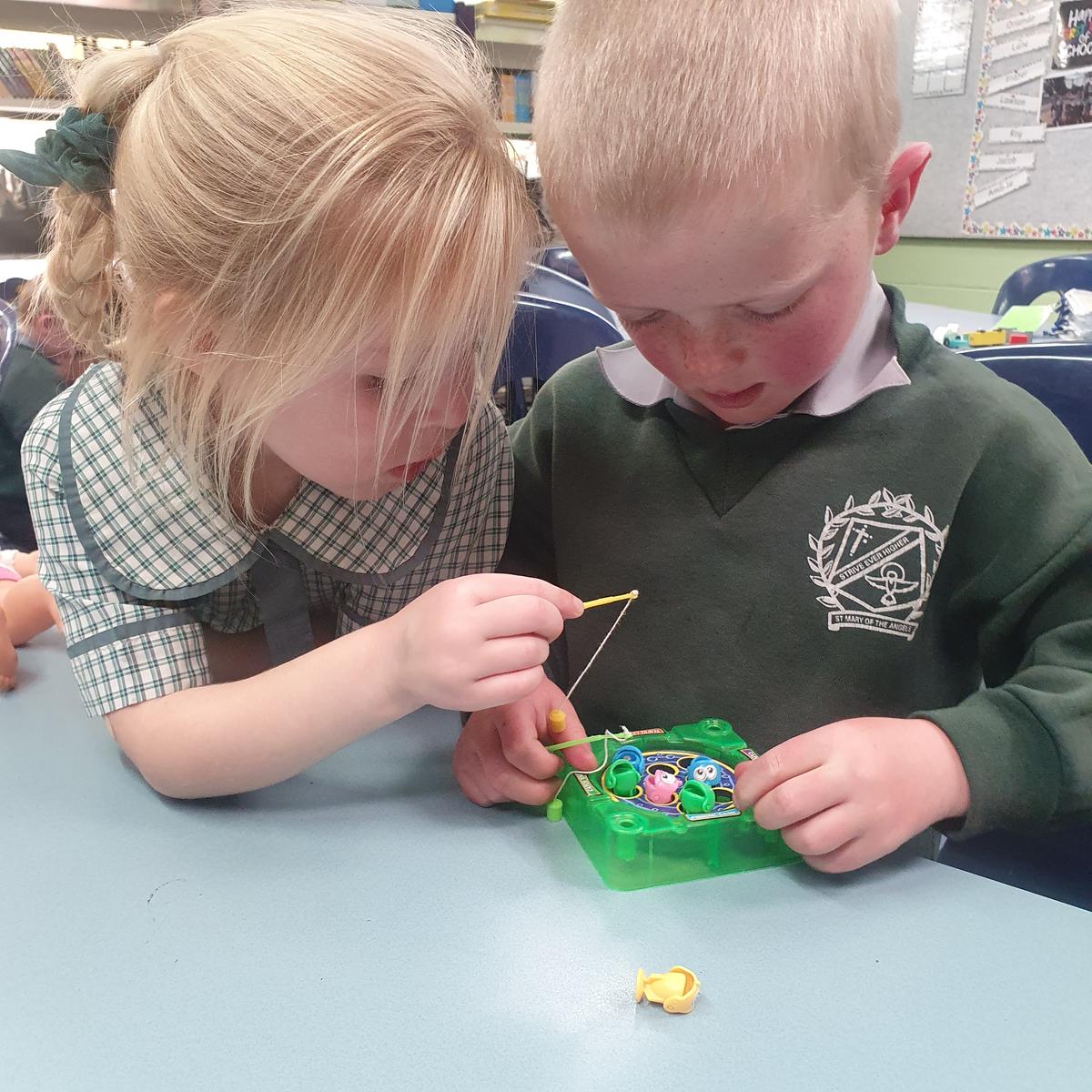
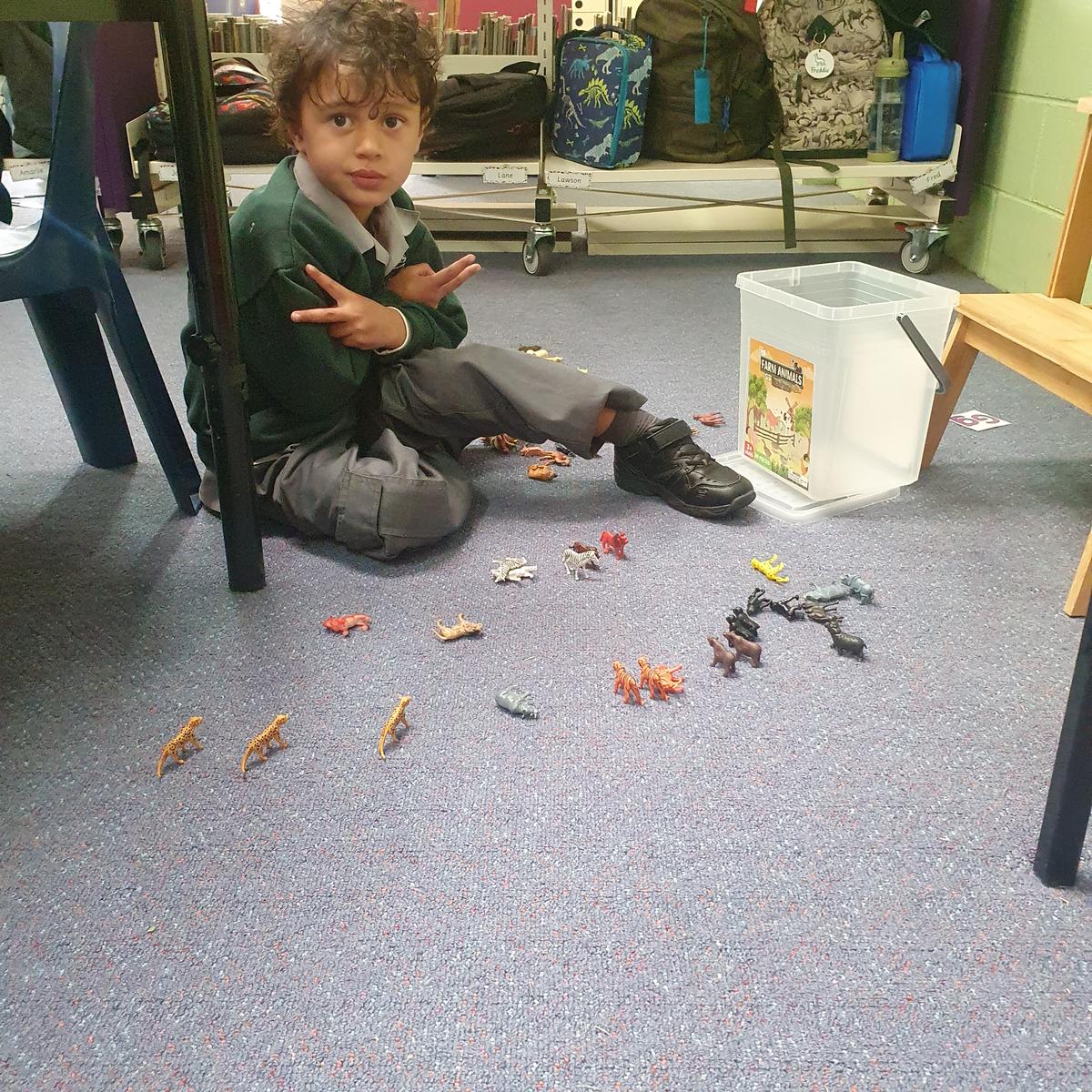
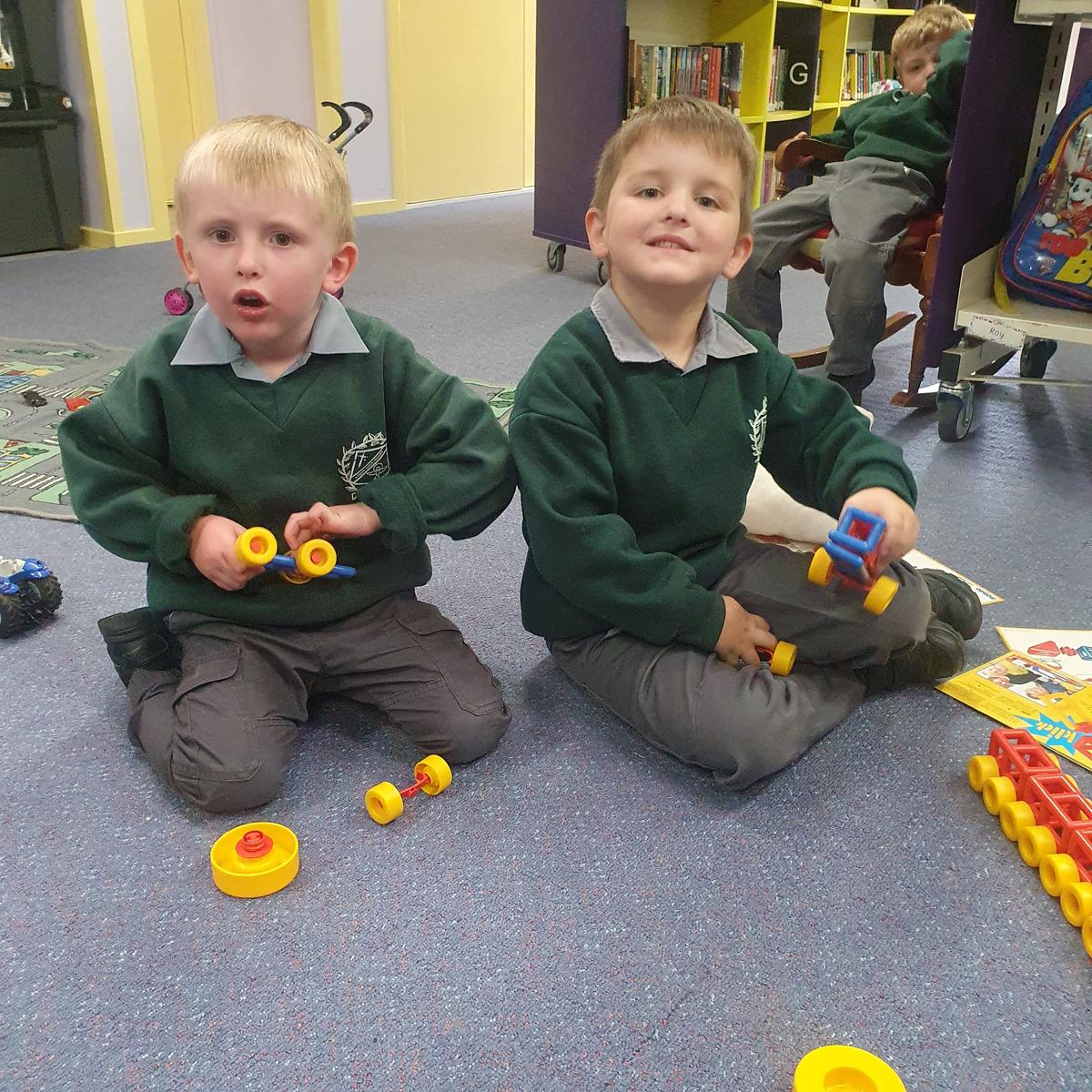




Kindergarten parents:
Students will learn to identify left and right. They will use the terms ‘left’ and ‘right’ when referring to familiar tasks, for example ‘I hold my pencil in my left hand’, ‘I put on my right shoe first’. Knowing left and right is essential to everyday life as these terms are used with many things from labelling/describing shoes, to crossing the road, to telling someone which direction to go.
Students will be using simple positional language such as ‘inside’, ‘outside’, ‘on’ and ‘off’ to direct where objects need to be placed. Practice with a collection of small everyday items such as a cup, plate, book, shoe, teddy bear, etc that can be moved into different positions. They will also use positional language such as ‘between’, ‘next to’ and ‘behind’ to position objects in relation to themselves.
Year 1/2 Parents:
Here are some fun ways to teach your kids positional language in a way they will remember.
What is Positional Language?
Positional language words refer to where things are positioned or where they appear in relation to other things. We also call these “prepositions,” and you may have memorised a list of these words at some point in school. Teaching your kids this positional vocabulary through games and activities will help them grasp the concepts and give them some early mathematics and geography skills. Having an understanding of position in space and how things relate to each other is part of a child’s cognitive development.
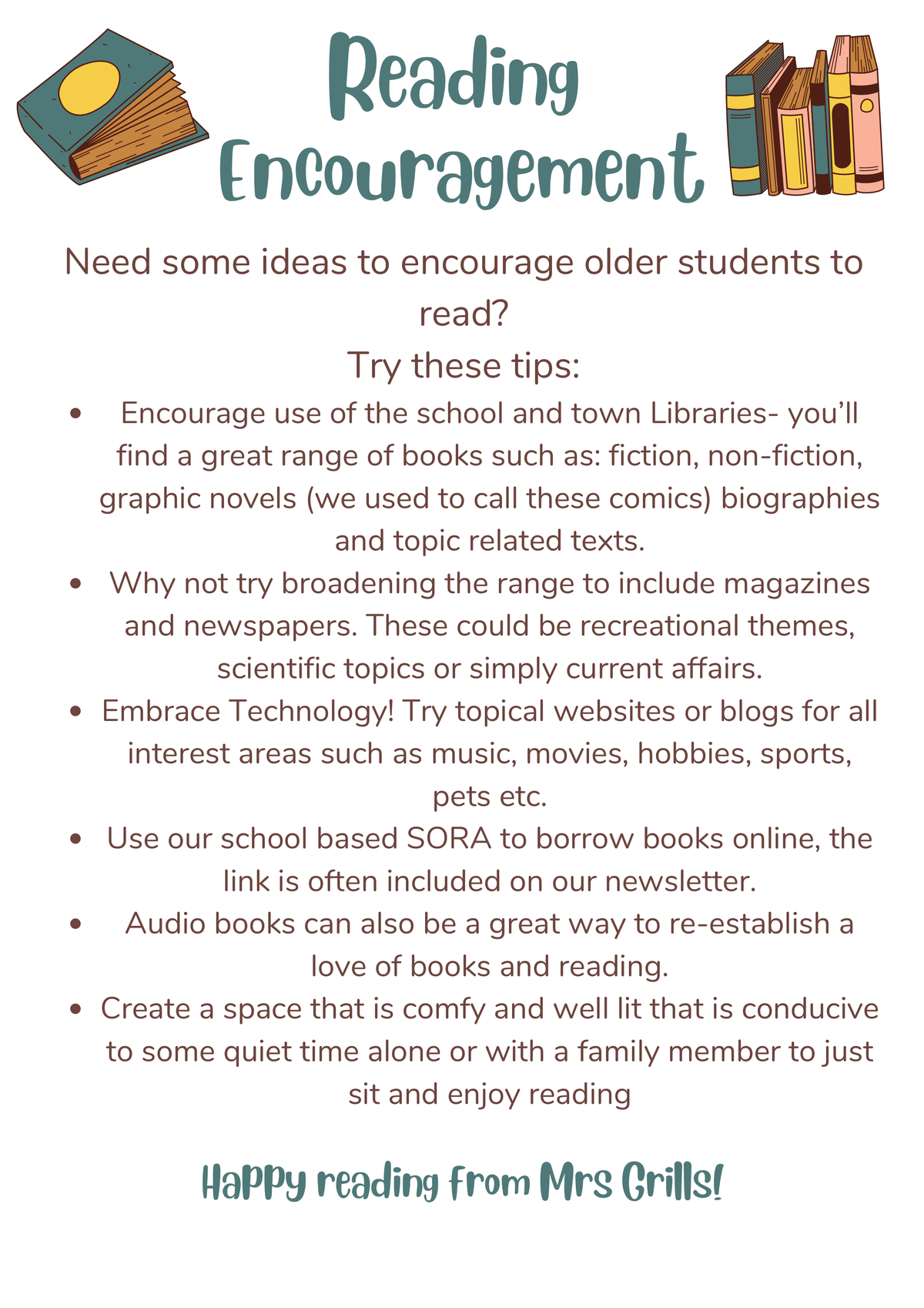

As we commence a new year, please remember that all students have access to SORA, our digital library platform. Simply access your app store and download SORA. Once in the app you will need to add our Library by searching for:
or select
YOUR SETUP CODE IS: CENETAU
You will be prompted to:
Username: is your school email address
Password: is the same password that you use to log into your Chromebooks every day at school!
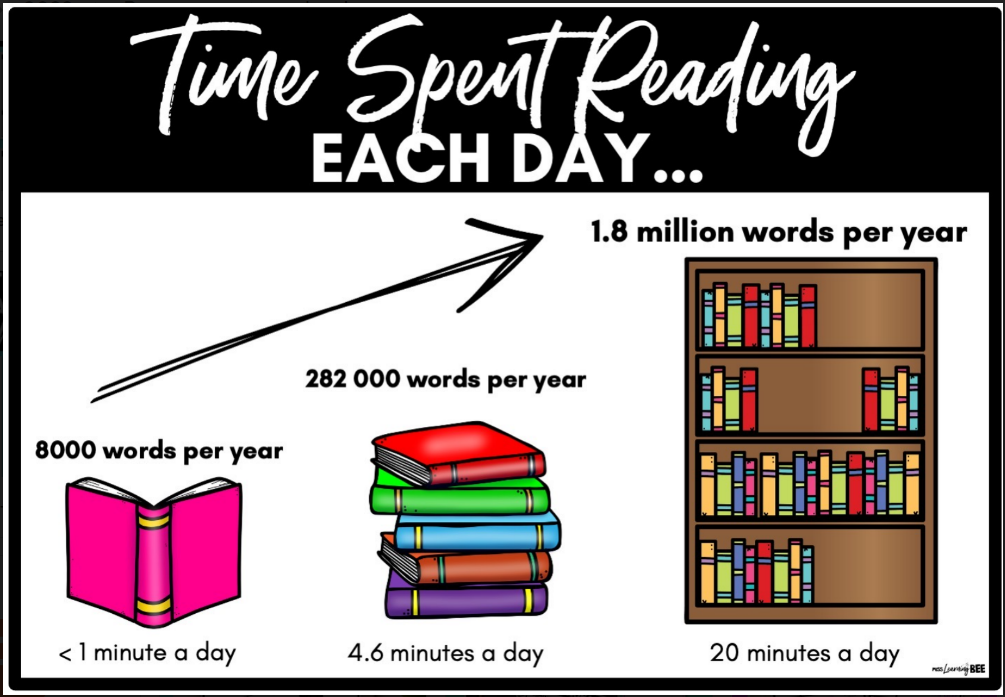

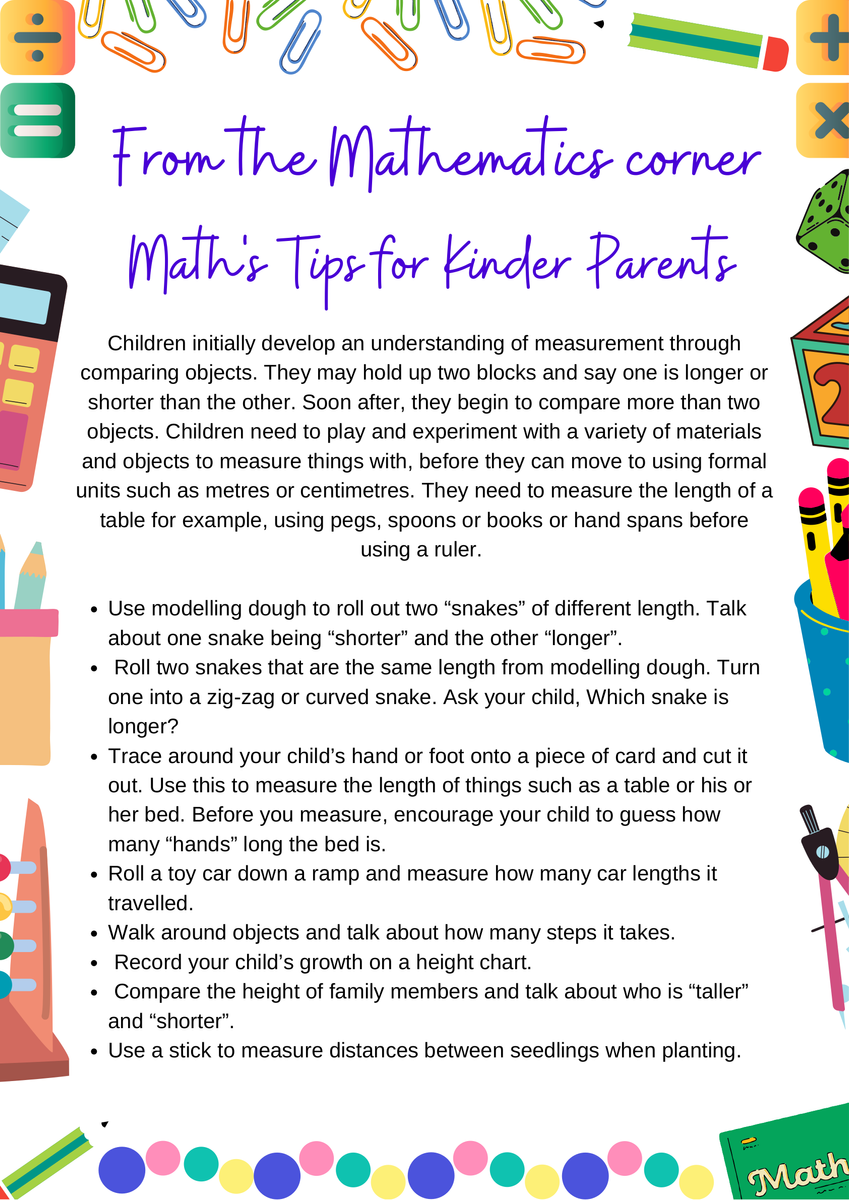

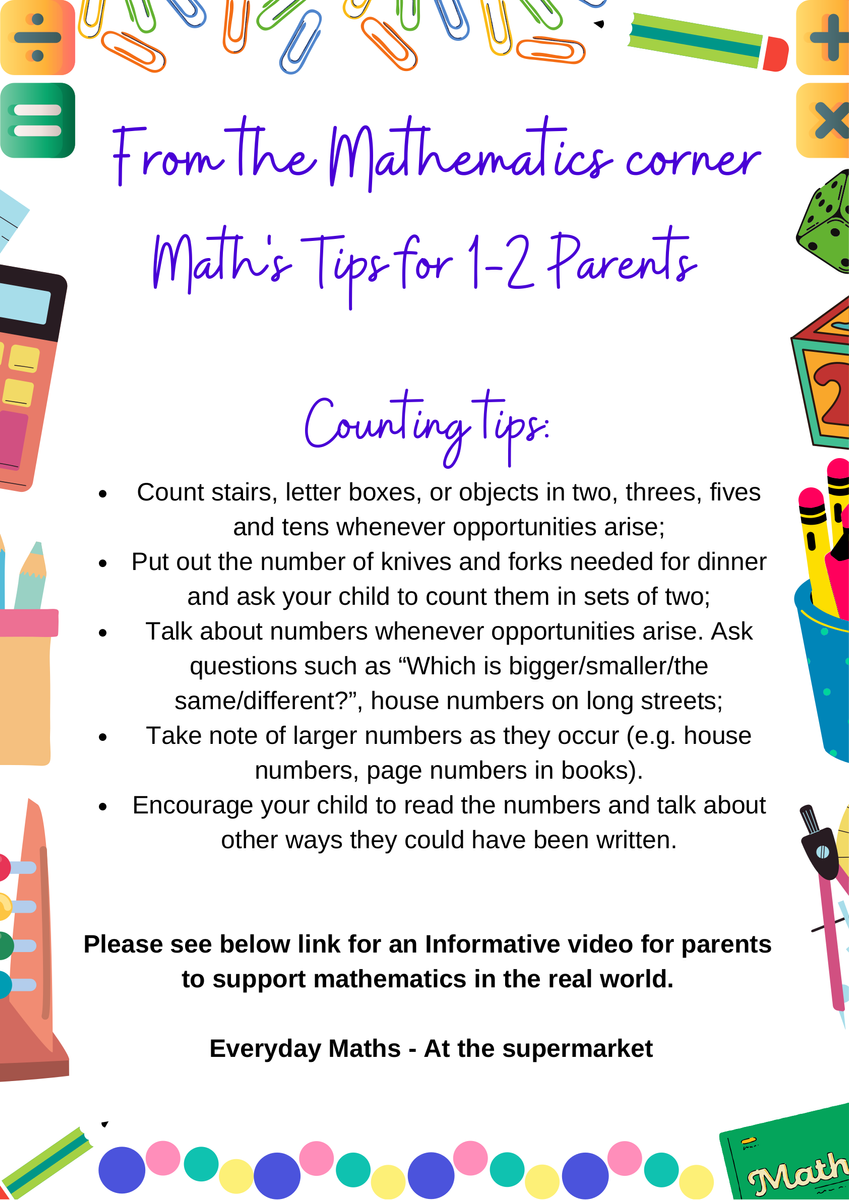

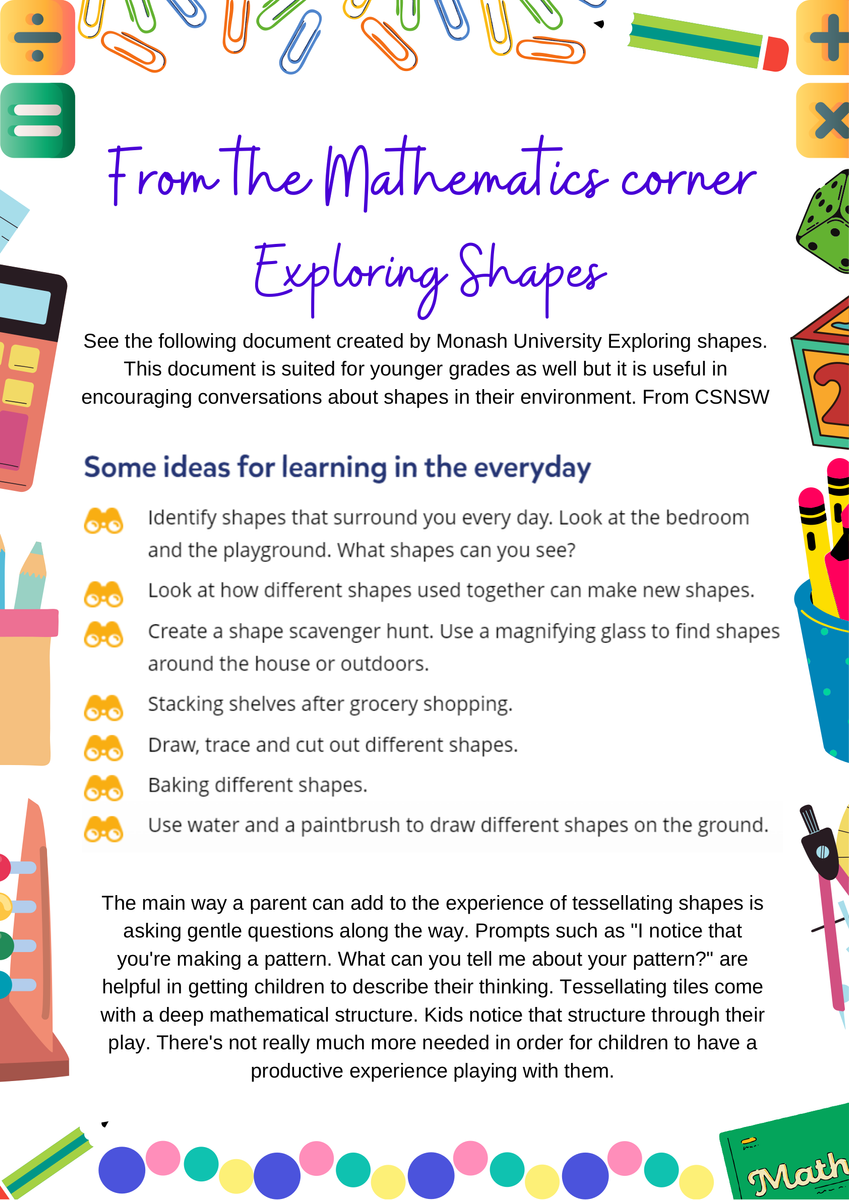

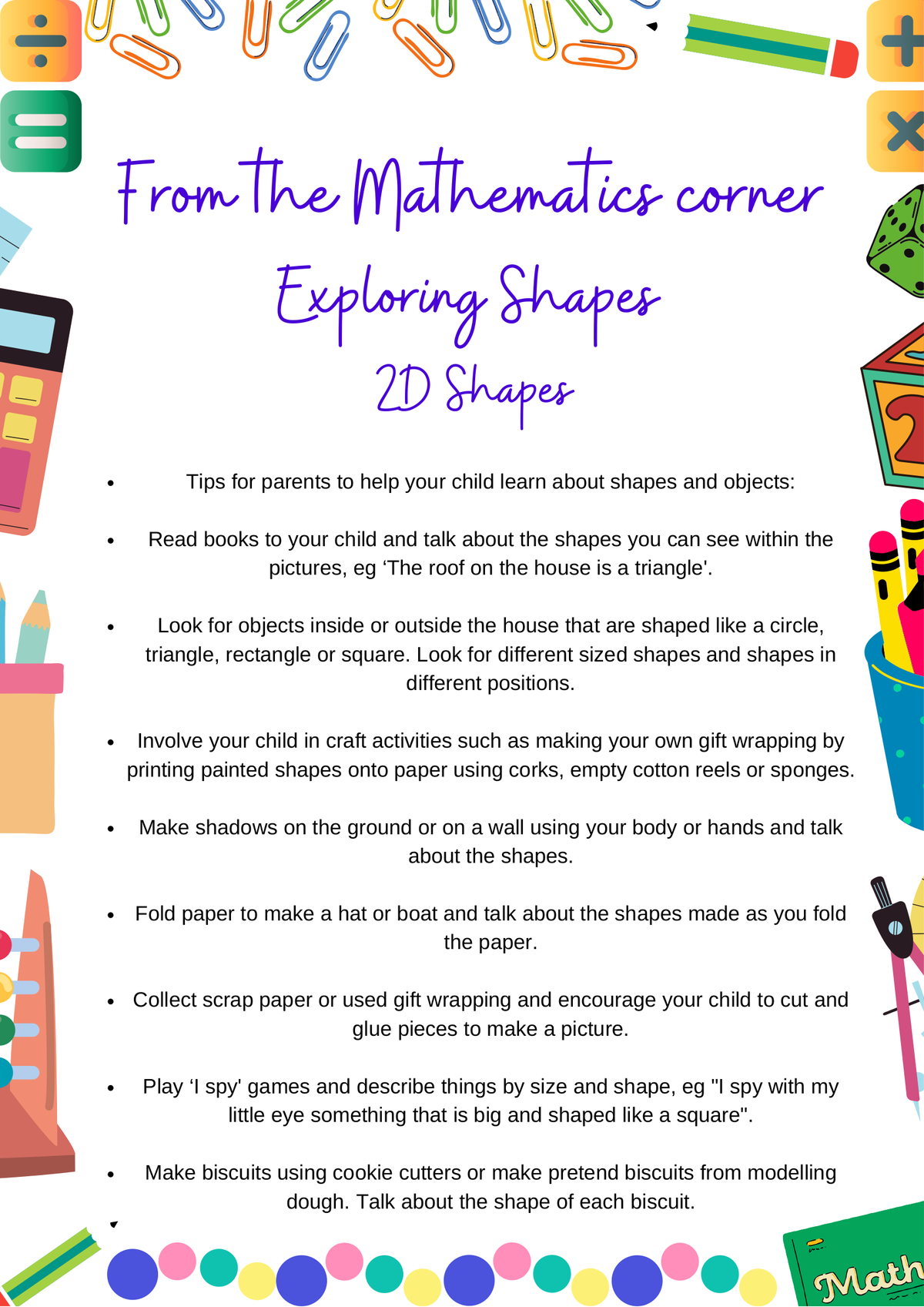

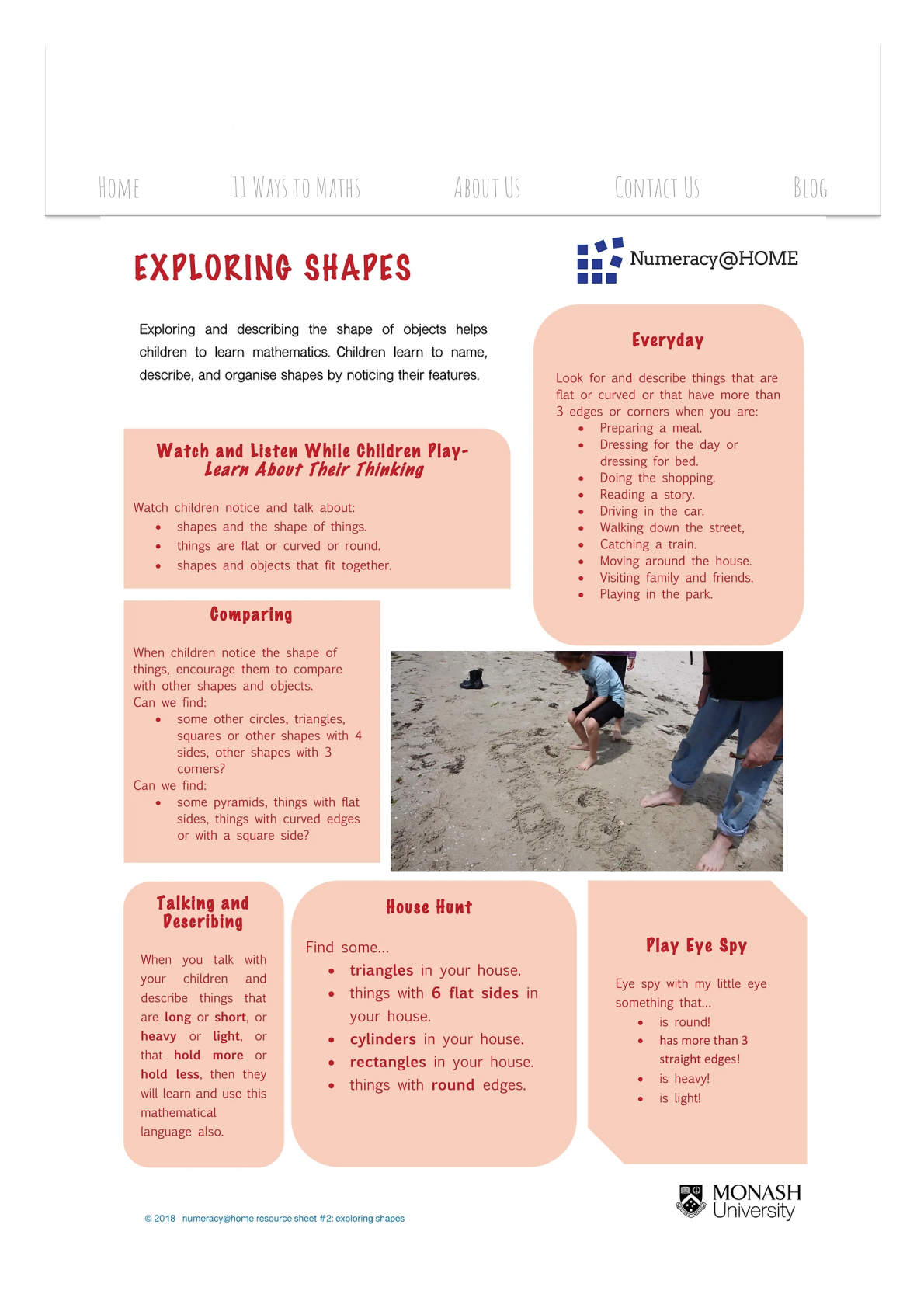

Each Year our students are given the opportunity to take part in the NSW Premier’s Reading Challenge. The 2023 challenge is now open until Friday 18th August, and is used to encourage students to foster a love of reading.
The Premiers reading challenge allows students to register their books read from a set booklist online. If they read a set number of books, they receive a certificate from the NSW Premier. After four years of participation in this event the student will receive a gold certificate. The children who participate are also listed on an online honour roll each year and some names are published in the Sydney morning herald.
In order for this to happen and for your child to receive their certificate, consent needs to be provided the event in compass. Information regarding the NSW Premiers Reading Challenge and book lists can be found on the NSW Education website or by contacting Karen Faint at the school. Participants will be provided with their own personal PRC login and password - please note this will be the same as last year's login details.
For more information please visit:
www.premiersreadingchallenge.nsw.edu.au
